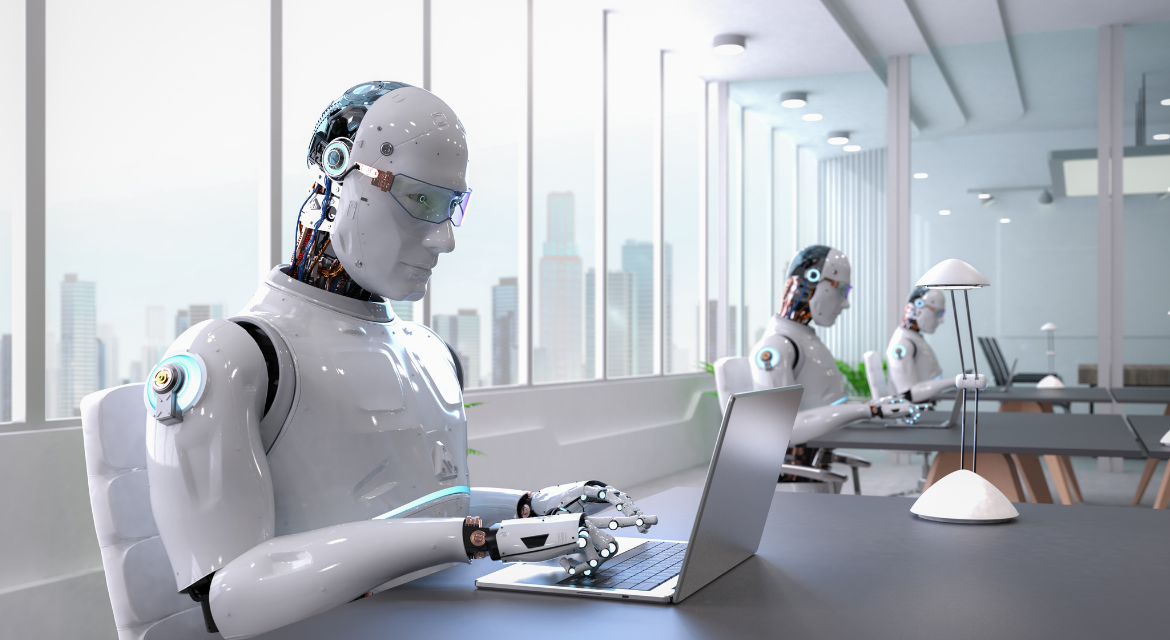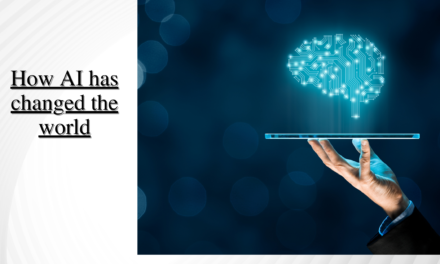The recent years have seen the world witness a transformational change in how we work with the rise of robotics and automation. In almost every industry, robots, those mechanical wonders in terms of precision and speed of fulfilling a task, are on their way. This development provides enormous benefits; however, it also poses questions about the effects on the job market.
Let’s read on to learn how robots are shifting the job market.
The Rise of Robots:
They are no longer confined to sci-fi stories. They are increasingly common at workplaces and now perform duties previously executed by humans. They are used to design products, undertake surgeries and control vehicles. For instance, technology has advanced so much that artificial intelligence and various advanced sensors have increased automation.
Job Displacement:
However, some people argue that robots can take away jobs from humans. However, this is true to some extent. Robots excel when it comes to repetitive and accurate procedures. This implies that machines may take over routine manual jobs and may result in job loss for some people.
The Changing Nature of Work:
With robots taking over a number of functions, new possibilities emerge as well. Today’s job environment makes it necessary for people to work with robots or in operating and maintenance positions. The workers must learn new skills to adapt to the new job environment.
Increased Productivity:
Robotics is good in that it increases productivity. Robots stay energised and make no errors when working all day. This efficiency can result in increased economic growth for companies. Companies may be forced to get additional workers in other areas as they become more productive and increase their operations.
Job Creation:
Moreover, it is essential to note that the robotics sector generates jobs too. More companies continue to pour their resources toward robotics, hence the call for engineers, technicians and programs that will design, build, and manage the robotic machine. This means some jobs may disappear through automation while others are created.
The Need for Lifelong Learning:
One should keep learning to stay relevant for a generation that wants everything fully automated. In today’s world, job demands are coupled with technical skills and problem-solving. The job market is changing quickly, so it would benefit employees who can easily adapt and learn new things.
Jobs Robots Are Taking Over
Some of the specific job categories that are particularly vulnerable to automation include:
Manufacturing and Assembly Line Jobs: Repetitive jobs in manufacturing, such as assembly lines, quality control, work, and material handling, are at greater risk of being automated. Such activities, however, could be more precise and regular; that is what machines can perform with greater success.
Data Entry and Administrative Tasks: Data entry, data processing, and administration are weak automation points. Bots are more effective compared to humans when it comes to the doing of repetitive data-related jobs.
Retail and Customer Service Jobs: This includes the installation of self-checkout stalls and inventory systems for cashiers and shelf stockers. This is reflected even in its other customer service personnel, whose main duty entails answering routine questions and backup purposes.
Routine Manual Labor: The usual tasks carried out in farming, construction, and mining will all be done through automation. Planting crops, digging trenches, and using heavy machinery with automatic mechanical equipment.
Telemarketing and Telesales: The introduction of a computerised telephone telemarketing system and artificial intelligence-based sales chatbots may render a number of human telemarketing callers redundant due to outbound sales calls and response management.
Conclusion:
Effects of Robotics on the Job Market are Complex. However there are risks of job loss, but there are also possibilities of increase and the emergence of new career routes. Therefore, people and society at large must accept the technological changes and support with an investiture in education and development so that the workforce can adapt to the changing job market.
Therefore, if you are concerned about robots stealing your job, understand it is true they will certainly alter how a person works, but at the same time provide a door to an interesting profession. So, ready yourself for tomorrow, learning unceasingly; you will surely face both challenges and opportunities in the era of robotics.





